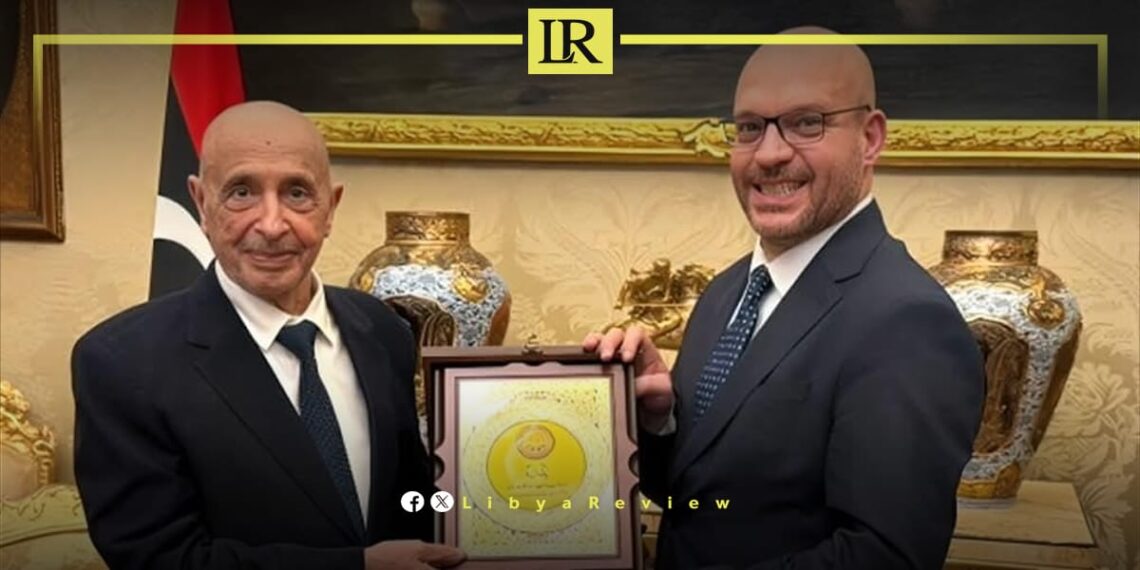Libyan Parliament Speaker, Ageela Saleh, held high-level talks in Rome with Italian Chamber of Deputies President Lorenzo Fontana and Deputy Foreign Minister Edmondo Cirielli, focusing on strengthening parliamentary cooperation and addressing shared priorities, particularly irregular migration and energy.
Saleh arrived in the Italian capital accompanied by a delegation of Libyan MPs, responding to an official invitation from Fontana. According to the Media Office of the Libyan Parliament Speaker, the visit reflects Italy’s growing engagement with Libya’s legislative institutions and its interest in supporting regional stability.
During the official meeting, both sides discussed mechanisms for enhancing parliamentary relations, improving coordination, and developing joint initiatives on issues of mutual concern. Migration topped the agenda, with the two parties emphasising the need for a coordinated approach to curb irregular flows across the central Mediterranean, disrupt human-trafficking networks, and strengthen border management. Energy cooperation was also highlighted as a vital pillar of the bilateral partnership, particularly in light of Italy’s strategic investments in Libya’s hydrocarbon sector and Europe’s broader push to secure diversified energy supplies.
The discussions underscored Italy’s continued support for political stability in Libya, with Fontana expressing Rome’s willingness to deepen institutional ties and encourage dialogue between Libyan parties. Saleh stressed the importance of international support that respects Libya’s sovereignty and backs a unified political path forward.
On the sidelines of the parliamentary engagement, Saleh met Deputy Foreign Minister Edmondo Cirielli to reaffirm the historic ties between the two nations. The meeting touched on expanding economic cooperation, boosting trade, and facilitating future partnerships in infrastructure, energy, and investment. Libya’s Ambassador to Italy, Mohannad Younis, attended the session.
The visit forms part of ongoing diplomatic efforts to reinforce Libya’s external relations, support legislative institutions, and create momentum for stability through stronger international cooperation.


